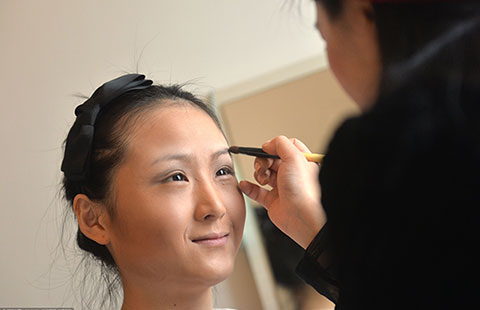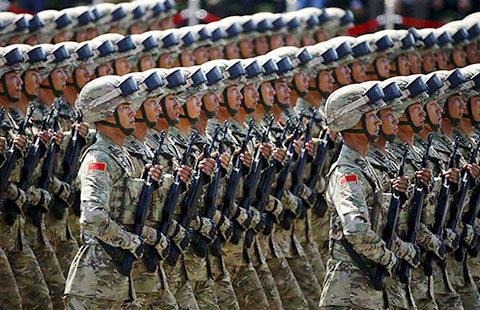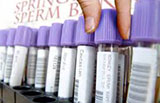New rules for blood donors
By Yang Wanli (China Daily) Updated: 2012-07-30 09:10Screening process for potential givers far from perfect, reports Yang Wanli in Beijing.
'Karen" has donated blood six times since she was a college student in 2006, despite the fact that as a lesbian she was banned from doing so until an amendment to the blood donor health requirements came into effect on July 1.
"I'm healthy. Sexual orientation has no relation to blood safety, it just depends on whether you engage in risky behavior or not," said the 26-year-old.
Common Language, a community-based support and rights group for lesbian, bisexual women and people who are transgender, conducted a survey in 2008 of 21 lesbians and bisexuals. The result showed that all the interviewees had donated blood and 14 of them had donated more than twice. Two were initially refused as donors when they revealed their sexual orientation but when they went to other centers and kept quiet about their sexuality they were both accepted as donors.
 |
|
Collecting blood at a blood donation center in Xidan in downtown Beijing in March. Acknowledging that lesbians are low-risk donors, the Ministry of Health revised the regulation introduced in 2001 that prohibited all homosexuals from giving blood. Zhang Bei / for China Daily |
The survey also found that the blood of only one of the 21 donors could not be used and that was because of tuberculosis.
Acknowledging that lesbians are low-risk donors, the Ministry of Health revised the regulation introduced in 2001 that prohibited all homosexuals from giving blood.
However, the regulation still prohibits gay men from donating blood, along with drug addicts and people with multiple sexual partners.
"The revised regulation focuses on actions of donors that might compromise blood safety instead of highlighting certain groups of people," said Gao Dongying, deputy director of the Beijing Red Cross Blood Center.
Risky behavior
The Ministry of Health says the regulations covering blood donations are aimed at protecting recipients of transfusions from exposure to potentially infected blood and blood products. Its data indicate that, as a group, men who have sex with men are more likely to get HIV and other contagious diseases than individuals in other categories.
According to the ministry, about 3 percent of Chinese men who have sex with other men are HIV positive, a percentage that is far higher than the average for the population as a whole. It estimates that in 2011 there were 48,000 new cases in the country and the virus had been sexually transmitted in 81.6 percent of these. The proportion for the period between 1985 and 2005 was only 11.6 percent.

"Even if we are still prohibited from donating blood, the revised requirement is better as it focuses on risky behavior rather than discriminating against a certain group of people," said Jiang Hui, who works at the Aibai Culture and Education Center in Beijing, which provides support for lesbian, gay, bisexual, and transgender people.
"I am happy to see that lesbians can donate blood legally in the future. It means a lot to homosexuals and the country," said Karen. "But I will still not admit my sexual orientation even now lesbians are allowed to donate blood."
In China, all potential blood donors have to fill in health declaration forms in which they are supposed to reveal their sexual orientation.
"John" from Hebei province, is a 27-year-old English teacher in a vocational school in Beijing, He has donated blood six times altogether since 2006 without revealing he was gay.
"I'm sure about my health, and my blood was tested and accepted," he said.
Usually within a week of giving blood, donors get a message telling them if their donated blood passed health checks, including HIV screening.
"There are still many people who are prejudiced against gays. We don't want to reveal our sexual orientation," he said.
However, under the new amendment, the forms will inform donors that they are liable for any damages arising from problems with their blood if they knowingly give false information.
Safety first
Yang Wenling, director of the Tianjin Blood Center, said that doctors at the center are aware that not all the information given them on the forms is reliable. If they think someone might be a high-risk donor, they will try to emphasize the importance of blood safety and ask about the donor's medical history.
"It is difficult to ask information of donors who are suspected of being gay. It needs skills to get their real information while preventing them from being hurt," Yang said.
In most cases, doctors will emphasize to donors the importance of blood safety, and if the donor doesn't do regular health checks they will suggest they doing a free one in the local diseases control center.
Yang said that if the donors were suspected of belonging to high-risk groups, their blood bag would be marked.
"I think blood safety is more important than the shortage of blood. We want to encourage more people to donate blood, but we have to confirm that all the blood is safe," she said.
Short of blood
China is among 70 countries worldwide with a blood donation rate of less than 1 percent of the population, a rate the World Health Organization considers to be the minimum requirement.
The average in high-income countries is about 4 percent. The number of unpaid donors in China rose from 6.75 million in 2006 to 11.8 million last year, and the volume of blood increased by more than 30 percent.
But the demand is still greater than the supply.
China's first Law on Blood Donation was enacted in 1998, encouraging all citizens between the ages of 18 and 55 to donate blood.
The latest revision has extended the maximum age of donors to 60.
Other countries trying to increase their supplies of donated blood have relaxed their restrictions on gay men donating blood.
In the United Kingdom, men who had sex with men were banned from donating blood until 2011, when the blood donor health requirement was revised so that men who hadn't had sex with men in the previous 12 months could donate blood. Australia, has a similar "safety period" of 24 months.
"It will take time for China to decide whether such a requirement can be used," said Gao from the Beijing Red Cross Blood Center.
"But blood safety is not only about donors it's also about users. Even if there is only one bag of unsafe blood, it will cause a big tragedy. Blood can save lives, but dangerous blood can also cost lives. So we cannot take a risk."
Contact the writer at yangwanli@chinadaily.com.cn
Tang Yue and Zhang Yuchen contributed to the story.
- Hanoi protest over test flight rejected
- PLA 'needs to boost its readiness'
- Govt mulls making retirees pay health insurance
- Watch this space: Telescope releases mass of data
- Beijing to work with neighbors to improve water quality
- China steps up crackdown on food and drug safety crimes
- Phones and drones - China's risk-takers who rule the world
- Rescue work continues to reach trapped miners
- China's 2nd aircraft carrier totally different from Liaoning
- Structural reform to power China's stable growth: Finance minister







